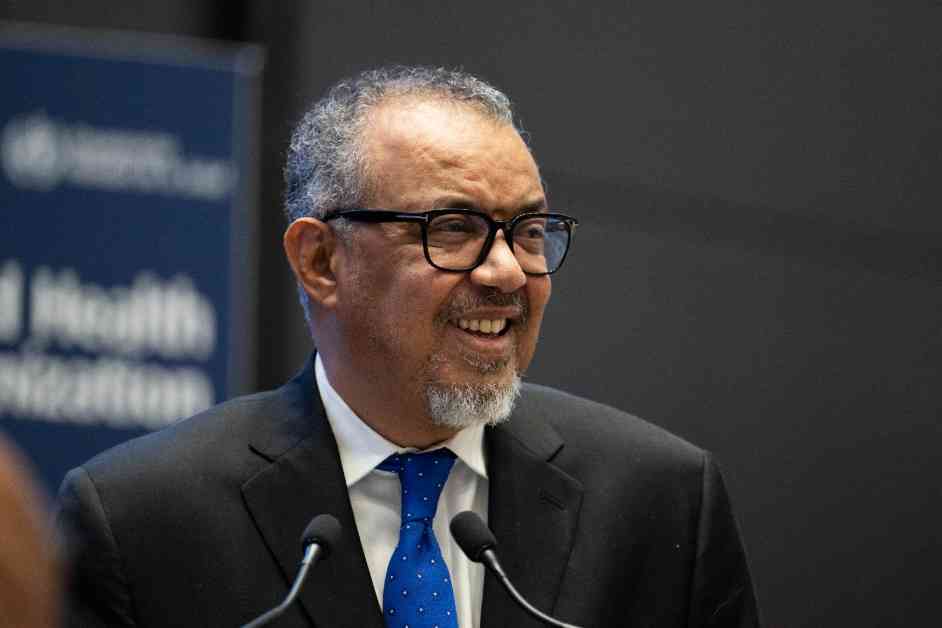World Health Organization Director-General, Tedros Adhanom Ghebreyesus, a prominent figure embroiled in controversy with the Ethiopian government, will be making a significant appearance at the African Union Heads of State Summit in Addis Ababa on February 18-19. This gathering is expected to serve as a platform for Tedros to engage in crucial discussions with African leaders regarding pressing health issues, such as malaria, tuberculosis, and HIV, as reported by Meseret Media.
Tedros Adhanom’s Turbulent Relationship with the Ethiopian Government
Tedros Adhanom Ghebreyesus made history in May 2017 when he became the first African director-general of the World Health Organization, receiving substantial support from his home country, Ethiopia. However, tensions escalated dramatically in November 2020 with the outbreak of the Tigray conflict, which led to a bitter feud between Tedros and the federal government. Accusations were hurled at him, claiming his allegiance to rebel factions within the country, particularly the Tigray People’s Liberation Front (TPLF). Tedros vehemently refuted these allegations, denying any involvement in seeking military assistance or diplomatic support for the TPLF.
In a surprising turn of events, despite Ethiopia withdrawing its support, Tedros ran unopposed for a second term in October 2022 and was successfully reappointed for another five-year tenure with the backing of 28 nations. This unexpected outcome underscored his resilience and unwavering commitment to global health, despite facing significant political challenges within his own nation.
The Impact of the Pretoria Agreement and Tedros’ Homecoming
The signing of the Pretoria Agreement in November 2022 between the Ethiopian federal government and the TPLF marked a pivotal moment in the resolution of the devastating two-year conflict. This accord brought a semblance of peace and stability to the region, prompting a more subdued stance from the government towards Tedros and his leadership at the WHO. The gradual easing of tensions following the agreement signified a potential shift towards reconciliation and cooperation between the parties involved.
Tedros Adhanom Ghebreyesus’ upcoming visit to Ethiopia for the African Union Heads of State Summit holds significant symbolic value, as it marks his return to his homeland after a prolonged absence of five years. This homecoming carries a sense of nostalgia and personal significance for Tedros, allowing him to reconnect with his roots and engage with African leaders on critical health issues that resonate deeply with his mission at the WHO.
As Tedros prepares to engage in constructive dialogues and collaborative efforts at the summit, his presence serves as a testament to the enduring spirit of resilience and dedication in the face of adversity. His journey exemplifies the intricate interplay between personal conviction, professional integrity, and global impact, highlighting the profound implications of his leadership on the world stage.
In conclusion, Tedros Adhanom Ghebreyesus’ participation in the AU Summit in Addis Ababa represents a pivotal moment in his ongoing narrative, encapsulating the complexities of his relationship with the Ethiopian government, the global health community, and his own heritage. His unwavering commitment to advancing health equity and addressing critical challenges underscores the transformative power of leadership in navigating turbulent waters and fostering meaningful change.

